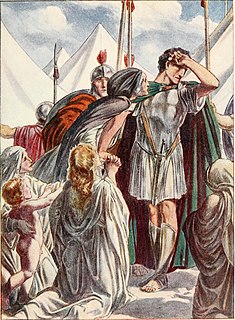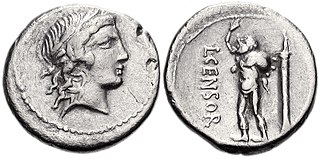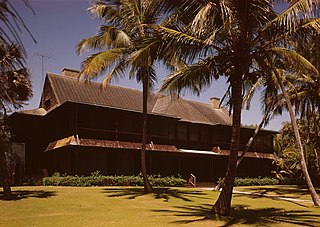This page is based on this
Wikipedia article Text is available under the
CC BY-SA 4.0 license; additional terms may apply.
Images, videos and audio are available under their respective licenses.
Year 82 BC was a year of the pre-Julian Roman calendar. At the time it was known as the Year of the Consulship of Marius and Carbo. The denomination 82 BC for this year has been used since the early medieval period, when the Anno Domini calendar era became the prevalent method in Europe for naming years.
Gaius Marcius Rutilus was the first plebeian dictator and censor of ancient Rome, and was consul four times.
Gaius, sometimes spelled Gajus, Cajus, Caius, was a common Latin praenomen; see Gaius (praenomen).
Appius Claudius Pulcher was a Roman politician of the 1st century BC. There is uncertainty about who his father was. It was most probably the Appius Claudius Pulcher who was consul in 143 BC. He was a supporter of Lucius Cornelius Sulla and served as praetor in 88 BC. He was exiled in that year by Gaius Marius while Sulla was away in the east. He returned to Rome after Lucius Cornelius Cinna died in 84 BC, and served as consul in 79 BC and as governor of Roman Macedonia from 78 BC to 76 BC.
Lucius Marcius Philippus was a member of a Roman senatorial family. He was a descendant of Roman King Ancus Marcius and the son of the consul and censor Lucius Marcius Philippus. He was a praetor in 60 BC, and became propraetor of Syria in 59 BC, although Appian records that he was propraetor of Syria in 61 BC. That same year he married Atia Balba Caesonia, niece of Julius Caesar. Philippus had a son and a daughter Marcia from a previous marriage which had ended with his wife's death. Atia's previous husband, Gaius Octavius, had died on his return to Rome, leaving her with two children: Octavia Minor and Gaius Octavius. Philippus cherished his stepchildren as if they were his own. He was consul of 56 BC with Gnaeus Cornelius Lentulus Marcellinus.
Quintus Marcius Rex was a member of the Marcii Reges, the family founded by the Roman King Ancus Marcius. His father Quintus Marcius Rex, the praetor in 144 BC, built the Aqua Marcia aqueduct, the longest aqueduct of ancient Rome. The aqueduct was known for its water purity and its cold temperature.

The gens Marcia, occasionally written Martia, was one of the oldest and noblest houses at ancient Rome. They claimed descent from the second and fourth Roman Kings, and the first of the Marcii appearing in the history of the Republic would seem to have been patrician; but all of the families of the Marcii known in the later Republic were plebeian. The first to obtain the consulship was Gaius Marcius Rutilus in 357 BC, only a few years after the passage of the lex Licinia Sextia opened this office to the plebeians.
Lucius Julius Caesar was a Roman politician and senator who was elected consul of the Roman Republic in 64 BC. A supporter of his cousin, the Roman dictator Gaius Julius Caesar, Lucius was a key member of the senatorial faction which strove to avoid civil war between the Roman Senate and his nephew Marcus Antonius in the aftermath of the Dictator's assassination.
Quintus Marcius Rex was a consul of the Roman Republic.
Agepolis of Rhodes was sent by his countrymen as ambassador to the consul Quintus Marcius Philippus in 169 BC, in the war with Perseus of Macedon, and had an interview with him near Herakleion in Macedon, in which Agepolis was notably charmed by the consul. He shortly thereafter visited Gaius Marcus Figulus and was received even more favorably. The Rhodians considered the warm receptions received by their envoy to be indicative of Rome's anxiety over the war, a conviction that was confirmed in their eyes when Agepolis related how Philippus had taken him aside to ask privately why Rhodes did not intercede to help end the conflict.

Marcius Censorinus was a name used by a branch of the plebeian gens Marcia of ancient Rome. The cognomen Censorinus was acquired through Gaius Marcius Rutilus, the first plebeian censor, whose son used it. The gens Marcia claimed descent from both Ancus Marcius, a king of Rome, and symbolically from Marsyas the satyr, who was associated with free speech and political liberty; see further discussion at Prophecy and free speech at Rome. The Marcii Censorini were consistent populares, supporting Marius, Cinna, Julius Caesar, and Antonius.
Gaius Marcius Figulus was a consul of the Roman Republic in 64 BC.
Gaius Marcius Censorinus was a Roman Senator who was elected consul in 8 BC.
Gaius Marcius Censorinus can refer to the following Roman people:
Gaius Marcius Censorinus was a late Roman Republican politician and soldier who participated in the First Civil War of the Roman Republic. During this war, he commanded the Populares forces at the Second Battle of Clusium.
Caius Marcius Figulus was a politician of the Roman Republic who served as praetor in 169 BC, Roman consul in 162 BC, and again as consul in 156 BC. Upon being elected to the praetorship in 169 BC, Figulus received command of the Roman fleets by lot. Later that year, he transported the consul, Quintus Marcius Philippus, to Ambracia so that he could assume command of Roman forces fighting the Third Macedonian War. Figulus himself sailed on to Creusa, then crossed Boeotia by land in a single day to join the rest of the fleet at Chalcis. The only other mention Livy makes of Figulus is a reference to his having assigned part of the fleet to winter quarters at Sciathus, and the remainder at Oreum, in Euboea, which he judged the best location to maintain supply lines to the army in Macedon.
Quintus Marcius Rex was a name used by men of the gens Marcia in Ancient Rome. They belonged to the Marcii Reges, a family who were the relatives of Gaius Julius Caesar through his grandmother Marcia.
Gaius Marcius Figulus was a name used by men of the Marcii Figuli. Two known members were:




